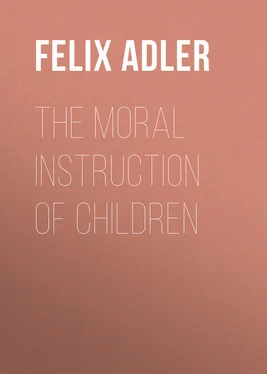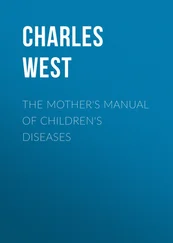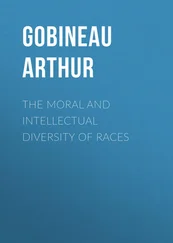Felix Adler - The Moral Instruction of Children
Здесь есть возможность читать онлайн «Felix Adler - The Moral Instruction of Children» — ознакомительный отрывок электронной книги совершенно бесплатно, а после прочтения отрывка купить полную версию. В некоторых случаях можно слушать аудио, скачать через торрент в формате fb2 и присутствует краткое содержание. Жанр: foreign_language, foreign_antique, foreign_prose, на английском языке. Описание произведения, (предисловие) а так же отзывы посетителей доступны на портале библиотеки ЛибКат.
- Название:The Moral Instruction of Children
- Автор:
- Жанр:
- Год:неизвестен
- ISBN:нет данных
- Рейтинг книги:3 / 5. Голосов: 1
-
Избранное:Добавить в избранное
- Отзывы:
-
Ваша оценка:
- 60
- 1
- 2
- 3
- 4
- 5
The Moral Instruction of Children: краткое содержание, описание и аннотация
Предлагаем к чтению аннотацию, описание, краткое содержание или предисловие (зависит от того, что написал сам автор книги «The Moral Instruction of Children»). Если вы не нашли необходимую информацию о книге — напишите в комментариях, мы постараемся отыскать её.
The Moral Instruction of Children — читать онлайн ознакомительный отрывок
Ниже представлен текст книги, разбитый по страницам. Система сохранения места последней прочитанной страницы, позволяет с удобством читать онлайн бесплатно книгу «The Moral Instruction of Children», без необходимости каждый раз заново искать на чём Вы остановились. Поставьте закладку, и сможете в любой момент перейти на страницу, на которой закончили чтение.
Интервал:
Закладка:
Let me briefly indicate how the different duties may be made to fall into line according to the plan of classification which has just been suggested. The whole field of duty may be divided into three main provinces: 5 5 It may be urged by some that duties toward God ought to be included in such a scheme of moral lessons as we are proposing. I should say, however, that the discussion of these duties belongs to the Sunday-schools, the existence of which alongside the daily schools is presupposed throughout the present course of lectures .
those duties which relate to ourselves, those which we owe to all men, and those which arise in the special relations of the family, the state, etc.:
I. The Self-regarding Duties.
These may again be subdivided into duties relating to our physical nature, to the intellect, and to the feelings.
Under the head of physical duties belong the prohibition of suicide, and the duties of physical culture, temperance, and chastity.
Intellectual Duties. – Under this head may be ranged the duty of acquiring knowledge and the subsidiary duties of order, diligence, perseverance in study; while, for those who are beyond the school age, special stress should be laid on the duty of mental genuineness. This may be expressed in the words: To thine own mental self be true. Study thine own mental bent. Try to discover in what direction thy proper talent lies, and make the most of it. Work thine own mine: if it be a gold-mine, bring forth gold; if it be a silver-mine, bring forth silver; if it be an iron-mine, bring forth iron. Endeavor to master some one branch of knowledge thoroughly well. It is for thee the key which opens the gates of all knowledge. The need of general culture is felt by all, but the concentration of intellectual efforts on special studies is not inconsistent with it. On the contrary, special studies alone enable us to gain a foothold in the realm of knowledge. A branch of knowledge which we have mastered, however small, may be compared to a strong fortress in an enemy's country, from which we can sally forth at will to conquer the surrounding territory. Knowledge may also be likened to a sphere. From every point of the circumference we can, by persistent labor, dig down to the center. He who has reached the center commands the sphere.
Duties which relate to the Feelings. – The principal duty under this head may be expressed in the twofold command – control and purify thy feelings! The feelings which need to be repressed are anger, fear, self-complacency. Let the teacher, when he reaches this point, dwell upon the causes and the consequences of anger. Let him speak of certain helps which have been found useful for the suppression of angry passion. Let him distinguish anger from moral indignation.
In dealing with fear let him pursue the same method. Let him distinguish physical from moral cowardice, brute courage from moral courage, courage from fortitude.
In dealing with self-complacency let him discriminate between vanity and pride, between pride and dignity. Let him show that humility and dignity are consistent with one another, yes, that they are complementary aspects of one and the same moral quality. Not the least advantage to be reaped from lessons on duty is the fixing in the pupil's mind of the moral vocabulary. The moral terms as a rule are loosely used, and this can not but lead to confusion in their application. Precise definitions, based on thorough discussion, are an excellent means of moral training. 6 6 The duties which relate to the moral nature, as a whole, such for instance as the duty of self-scrutiny, may be considered either at the end of the chapter on self-regarding duties, or at the close of the whole course.
II. The duties which we owe to all men are Justice and Charity:
Be just is equivalent to – Do not hinder the development of any of thy fellow-men. Be charitable is equivalent to – Assist the development of thy fellow-men. Under the head of charity the teacher will have occasion to speak not only of almsgiving, the visitation of the sick, and the like, but of the thousand charities of the fireside, of the charity of bright looks, of what may be called intellectual charity, which consists in opening the eyes of the mentally blind, and of the noblest charity of all, which consists in coming to the aid of those who are deep in the slough of moral despond, in raising the sinful and fallen.
III. Special social duties:
Under this head belong the duties which arise in the family: the conjugal, the parental, the filial, the fraternal duties.
Under the head of duties peculiar to the various avocations should be discussed the ethics of the professions, the ethics of the relations between employers and laborers, etc.
The consideration of the duties of the citizen opens up the whole territory of political ethics.
Lastly, the purely elective relationships of friendship and religious fellowship give rise to certain fine and lofty ethical conceptions, the discussion of which may fitly crown the whole course.
I have thus mentioned some of the main topics of practical ethics, from which we are to make our selection for the moral lessons.
But a selective principle is needed. The field being spread out before us, the question arises, At what point shall we enter it? What topics shall we single out? It would be manifestly absurd, for instance, to treat of international ethics, or of conjugal ethics, in a course intended for children. But especially the order in which the different topics are to follow each other needs to be determined. The order followed in the above sketch is a purely logical one, and the logical arrangement of a subject, as every educator knows, is not usually the one most suitable for bringing it within reach of the understanding of children. It would not be in the present instance. Clearly a selective principle is wanted.
Let me here interrupt myself for a moment to say that the problem which we are attacking, so far from being solved, has heretofore hardly even been stated. And this is due to the fact that moral instruction has been thus far almost entirely in the hands of persons whose chief interest was religious, and who, whatever their good intentions might be, were hardly qualified to look at the subject from the educator's point of view. The work of breaking ground in the matter of moral instruction has still to be done. As to the selective principle which I have in view I feel a certain confidence in its correctness; but I am aware that the applications of it will doubtless require manifold amendment and correction, for which purpose I invoke the experience and honest criticism of my fellow-teachers. This being understood, I venture to ask your attention to the following considerations:
The life of every human being naturally divides itself into distinct periods – infancy, childhood, youth, etc. Each period has a set of interests and of corresponding duties peculiar to itself. The moral teaching should be graded according to periods. The teaching appropriate to any period is that which bears upon the special duties of that period. To illustrate, the ethics of childhood may be summarized as follows: The personal duties of a child are chiefly the observance of a few simple rules of health and the curbing of its temper. It owes social duties to parents, brothers and sisters, and kinsfolk, to its playmates, and to servants. The child is not yet a citizen, and the ethics of politics, therefore, lie far beyond its horizon; it does not yet require to be taught professional ethics, and does not need to learn even the elements of intellectual duty, because its energies are still absorbed in physical growth and play. The duties of childhood can be readily stated. The peculiar duties of the subsequent stages of development, for instance, of middle life and old age, are complex, and not so easy to define. But I believe that the attempt to describe them will throw light on many recondite problems in ethics.
Читать дальшеИнтервал:
Закладка:
Похожие книги на «The Moral Instruction of Children»
Представляем Вашему вниманию похожие книги на «The Moral Instruction of Children» списком для выбора. Мы отобрали схожую по названию и смыслу литературу в надежде предоставить читателям больше вариантов отыскать новые, интересные, ещё непрочитанные произведения.
Обсуждение, отзывы о книге «The Moral Instruction of Children» и просто собственные мнения читателей. Оставьте ваши комментарии, напишите, что Вы думаете о произведении, его смысле или главных героях. Укажите что конкретно понравилось, а что нет, и почему Вы так считаете.












